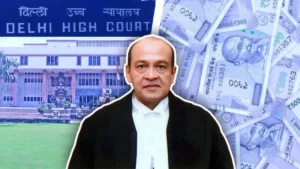
Operation Sindoor
Stay connected via Google News Follow us for the latest travel updates and guides. July 21st Current Affairs Home /

Alaska Earthquakes
Stay connected via Google News Follow us for the latest travel updates and guides. July 21st Current Affairs Home /

August 2, 2027 Solar Eclipse
Stay connected via Google News Follow us for the latest travel updates and guides. July 21st Current Affairs Home /

India’s milestone in clean energy transition
Stay connected via Google News Follow us for the latest travel updates and guides. July 21st Current Affairs Home /

‘Baby Grok’, child-friendly AI app
Stay connected via Google News Follow us for the latest travel updates and guides. July 21st Current Affairs Home /

Impeachment proceedings against Justice Yashwant Verma
Stay connected via Google News Follow us for the latest travel updates and guides. July 22nd Current Affairs Home /
UPSC ಯ “ಐಚ್ಚಿಕ ಕನ್ನಡ ಸಾಹಿತ್ಯ” ತಯಾರಿ ಹೀಗಿರಲಿ
ಮೊದಲ ಹಂತ: ಸಾಮಾನ್ಯ ಓದು
UPSC ಯ ಐಚ್ಛಿಕ ಕನ್ನಡ ಸಾಹಿತ್ಯ ತೆಗೆದುಕೊಂಡು ತಯಾರಾಗುವ ವಿದ್ಯಾರ್ಥಿಗಳು ಎಲ್ಲ ಕೃತಿಗಳನ್ನು ಓದಬೇಕಾ ಮತ್ತು ಸಾಹಿತ್ಯದ ಹಿನ್ನಲೆ ಇಲ್ಲದೇ ಇರುವಾಗ ತರಗತಿಗಳು ಬೇಕಾ ಎಂಬ ಪ್ರಶ್ನೆ ಇದೆ. ಹೌದು ನಮಗೆ ನೀಡಿರುವ ಎಲ್ಲಾ ಪಠ್ಯಪುಸ್ತಕಗಳನ್ನು ಓದಲೇಬೇಕು ಅವುಗಳನ್ನು ಓದಿದಾಗ ಮಾತ್ರವೇ ಕನ್ನಡ ಸಾಹಿತ್ಯದ ಪರಿಚಯವಾಗುವುದು. ಸಾಹಿತ್ಯದ ಹಿನ್ನಲೆಯನ್ನು ಇಲ್ಲದಿರುವಾಗ ತರಗತಿಗಳ ಮೊರೆ ಹೋಗುವುದು ಉತ್ತಮ. ಇಲ್ಲವಾದರೆ ಕನ್ನಡ ಸಾಹಿತ್ಯದ ಪರಿಚಯವಿರುವ ಮಾರ್ಗದರ್ಶಕರಾದರು ಇರಬೇಕು.
ವಿಶಾಲವಾದ ವೈವಿಧ್ಯಮಯವಾದ ಐಚ್ಚಿಕ ಕನ್ನಡ ಸಾಹಿತ್ಯದ ಪಠ್ಯಗೆ ಸಂಬಂಧಿಸಿದ ಕಥೆ, ಕವಿತೆ, ಕಾದಂಬರಿಗಳ, ನಾಟಕಗಳ ಸಾರಾಂಶದ ಅರಿವು ಪಡೆಯಲು YouTube ವೀಡಿಯೋ ಸಾಧನವನ್ನು ಪರಿಣಾಮಕಾರಿಯಾಗಿ ಬಳಸಿಕೊಳ್ಳಬಹುದು.
ಆನ್ಲೈನ್ನಲ್ಲಿ ಸಾಹಿತ್ಯ ವಿಶ್ಲೇಷಣೆ ಮತ್ತು ಪಠ್ಯ ವಿಸ್ತಾರಕ್ಕಾಗಿ ಹಲವಾರು ಉಚಿತ ಸಂಪನ್ಮೂಲಗಳಿವೆ, ಉದಾ: YouTube Channels ಗಳಾದ GIPA(ಗೋಖಲೆ ಸಾರ್ವಜನಿಕ ವಿಚಾರ ಸಂಸ್ಥೆಯ) ಉಪನ್ಯಾಸಗಳಿಂದ ಪ್ರಾಚೀನ ಮತ್ತು ಮಧ್ಯಕಾಲೀನ ಕನ್ನಡ ಸಾಹಿತ್ಯದ ಆಯ್ದ ಉಪನ್ಯಾಸಗಳನ್ನು ಕೇಳಬಹುದು, SDM Golden Lecturers by SDM Multimedia Studio, Karnataka Sahithya Academy, Life Pages ‘ಕಥೆಗಾರ’ Serials ಆಯ್ದ ಸಣ್ಣಕತೆಗಳನ್ನು ದೃಶ್ಯ ಮಾಧ್ಯಮದಲ್ಲಿಯೇ ನೋಡಿ ತಿಳಿಯಬಹುದು ಹೀಗೆ ಅನೇಕ ಅಂಶಗಳನ್ನು ವಿವಿಧ ರೂಪದಲ್ಲಿ ನಮಗೆ ಅಗತ್ಯವಿರುವುದನ್ನು ಮಾತ್ರ ತೆಗೆದುಕೊಂಡು ಕಲಿಕೆಯ ಅನುಗುಣವಾಗಿ ಮಾಹಿತಿಯನ್ನು ಪಡೆಯಬೇಕು.
ಇದರ ಜೊತೆಗೆ ಪಠ್ಯ ಪುಸ್ತಕಗಳನ್ನು ಓದದೆ ಎಲ್ಲವನ್ನು ಕೇಳಿಯೇ ತಿಳಿದುಕೊಳ್ಳುತ್ತೇನೆ ಎಂದು ಮಾತ್ರ ನಿರ್ಧರಿಸಬಾರದು, ಪಂಪ, ರನ್ನ, ಜನ್ನ ಮತ್ತು ನಾಗಚಂದ್ರರ ಪ್ರಾಚೀನ ಕನ್ನಡ ಸಾಹಿತ್ಯ ಕೃತಿಗಳ ಭಾಷೆ ಕೆಲವೊಮ್ಮೆ ನಮಗೆ ಅರ್ಥವಾಗದೆ ಇರಬಹುದು ಆದರೆ ಹೊಸಗನ್ನಡದಲ್ಲಿ ಎಲ್ಲಾ ಕೃತಿಗಳು ಲಭ್ಯವಿವೆ. ಅವುಗಳನ್ನು ಅಧ್ಯಯನ ಮಾಡುತ್ತಾ ಕೇವಲ ಪಠ್ಯಗಳನ್ನು ಓದುವುದಲ್ಲದೆ, ಕೃತಿಯಲ್ಲಿ ಬಳಸುವ ಭಾಷೆಯ ವೈಶಿಷ್ಟ್ಯ, ಪದಗಳ ಬಳಕೆ, ಬರವಣಿಗೆಯ ಶೈಲಿ ಮತ್ತು ಅರ್ಥದ ಸಂದರ್ಭಗಳನ್ನು ಗಮನಿಸುವುದು ಮುಖ್ಯ ಇಲ್ಲಿ. ಇದರ ಮೂಲಕ ಸಾಹಿತ್ಯದ ಗಂಭೀರತೆ ನಮಗೆ ಪರಿಚಿತವಾಗುತ್ತದೆ.
ಎರಡನೇ ಹಂತ: ಪರಿಣಾಮಕಾರಿಯಾದ ಅಧ್ಯಯನ
ಪೇಪರ್ 1 ಮತ್ತು ಪೇಪರ್ 2 ಗಳ ಕಳೆದ ಹತ್ತು ವರ್ಷಗಳ ಪ್ರಶ್ನೆ ಪತ್ರಿಕೆಯೊಂದಿಗೆ ನಮಗೆ ಇಟ್ಟಿರುವ ಪಠ್ಯಕ್ರಮವನ್ನು ವಿಶ್ಲೇಷಣೆ ಮಾಡುತ್ತಾ ಮತ್ತೆ ಹೊಸ ರೀತಿಯ ಓದನ್ನು ಇಲ್ಲಿ ಅನುಸರಿಬೇಕಾಗುತ್ತದೆ. ಪರೀಕ್ಷೆಯ ಬೇಡಿಕೆಯಂತೆ ನಿಜವಾದ ತಯಾರಿ ಪ್ರಾರಂಭವಾಗುವುದೇ ಈ ಎರಡನೇ ಹಂತದಲ್ಲಿ. ಉದಾ; ಪಂಪನನ್ನು ಓದುವಾಗ ಅವನ ಎರಡು ಕೃತಿಗಳಿಂದ ಇಲ್ಲಿವರೆಗೆ ಕೇಳಲಾದ ಪ್ರಶ್ನೆಗಳನ್ನು ನೋಡಬೇಕಾಗುತ್ತದೆ ತದನಂತರ ಕೇಳಿರುವ ಪ್ರಶ್ನೆಗಳಿಗೆ ಸಮರ್ಪಕವಾಗಿ ಉತ್ತರಿಸಲು ಬೇಕಾಗಿರುವ ಅಂಶಗಳನ್ನು ಆ ಕೃತಿಗಳಿಂದ ಹೆಕ್ಕಿ ತೆಗಿಯಬೇಕು.
- ಪಂಪನ ಆದಿಪುರಾಣದ ಬಾಹುಬಲಿ ಸಂವಾದ(೧೦) 2018
- ವಿಕ್ರಮಾರ್ಜುನ ವಿಜಯದ ಕರ್ಣನ ಪಾತ್ರ ಚಿತ್ರಣ. 2022
- ಪಂಪಭಾರತದ ನಾಯಕ ಯಾರು? ಅವನ ಪಾತ್ರವನ್ನು ಕವಿ ಹೇಗೆ ಚಿತ್ರಿಸಿದ್ದಾನೆ ವಿವರಿಸಿರಿ. 2023
ಈ ರೀತಿಯ ಪ್ರಶ್ನೆಗಳನ್ನು ಪೇಪರ್ 1 ರಲ್ಲಿ ಪಂಪನಿಂದ ಕೇಳಿರುವುದರಿಂದ ಪ್ರಶ್ನೆಯ ಬೇಡಿಕೆಯನ್ನು ಮೊದಲು ತಿಳಿದಾಗ ಮತ್ತೊಮ್ಮೆ ಆದಿಪುರಾಣವನ್ನು ಓದುವಾಗ ಬಾಹುಬಲಿಯ ಸಂವಾದವನ್ನು ಸೂಕ್ಷ್ಮವಾಗಿ ಗ್ರಹಿಸಲು ಸಾಧ್ಯವಾಗುತ್ತೆ ಹಾಗೆಯೇ ವಿಕ್ರಮಾರ್ಜುನದ ಕರ್ಣನ ಪಾತ್ರವನ್ನು ಸಹ ಅಷ್ಟೇ ಪ್ರಾಮುಖ್ಯತೆಯನ್ನು ನೀಡಿ ಕಥೆಯಂತೆ ಓದದೆ ವಿಶ್ಲೇಷಣಾತ್ಮಕವಾಗಿ ಕರ್ಣನನ್ನು ಅಧ್ಯಯನ ಮಾಡಲು ಪ್ರಾರಂಭಿಸುತ್ತೇವೆ.
ಪ್ರಶ್ನೆಗಳಿಗೆ ಸಮರ್ಪಕವಾಗುವಂತಹ ಕಾವ್ಯದ ಸಾಲುಗಳನ್ನು ಈ ಸಂದರ್ಭದಲ್ಲಿ ಪಟ್ಟಿಮಾಡಿಕೊಳ್ಳಬಹುದು.
ಪಂಪಭಾರತದಲ್ಲಿ:
- “ನೆನೆಯದಿರಣ್ಣ ಭಾರತದೊಳಿಂ ಪೆಱರಾರುಮನೊಂದೆ ಚಿತ್ತದಿಂ ….
ಕರ್ಣನ ಚಾಗಮೆಂದು ಕರ್ಣನ ಪಡೆಮಾತಿನೊಳ್ ಪುದಿದು ಕರ್ಣ ರಸಾಯನಮಲ್ತೆ ಭಾರತಂ”
- ಚಲದೊಳ್ ದುರ್ಯೋಧನಂ ನನ್ನಿಯೊಳಿನತನಯಂ ಗಂಡಿನೊಳ್ ಭೀಮಸೇನಂ……
- ಇದರೊಳ್ ಶ್ವೇತಾಪತ್ರಸ್ಥಗಿತ ದಶದಿಶಾಮಂಡಲಂ…….
ಇದುವೆ ಮಹಾಭಾರತಕ್ಕಾದಿಯಾಯ್ತು ….ಭವತ್ಕೇಶಪಾಶಪ್ರಪಂಚಂ ||
ಆದಿಪುರಾಣದಲ್ಲಿ
- ನೀಲಾಂಜನೆ ಕರ್ಬಿನ ಬಿಲ್ಲಂ ಮಸೆದ ಮದನನಲರ್ಗಣೆ ಬರ್ದುಕಿ
ತ್ತೆನಿಸುತ್ತೊಳಪೊಕ್ಕಳ್ ಭೋಂಕನೆ ನಿಖಿಲಜನಾಂತರಂಗಮಂ ರಂಗಮುಮಂ | - ನಾರೀರೂಪದ ಯಂತ್ರಂ ಚಾರುತರಂ ನೋಡೆನೋಡೆ ಕರಗಿದುದೀ…
- ಸೋದರರೊಳ್ ಸೋದರರಂ
ಕಾದಿಸುವುದು ಸುತನ ತಂದೆಯೆಡೆಯೊಳ್ ಬಿಡದು
ತ್ಪಾದಿಸುವುದು ಕೋಪಮನ್ ಅಳ
ವೀ ದೊರತೆನೆ ತೊಡರ್ವುದೆಂತು ರಾಜ್ಯಶ್ರೀಯೊಳ್….
‘ನೆಲಸುಗೆ ನಿನ್ನ ವೃಕ್ಷದೊಳ್ ನಿಶ್ಚಲಮಾ ರಾಜ್ಯಲಕ್ಷ್ಮಿ,’
‘ಭೂವಲಯಮನಯ್ಯನಿತ್ತುದಮಾಂ ನಿನಗಿತ್ತೆಂ ನೀನೊಲಿದ ಲತಾಂಗಿಗಂ ಧರೆಗಮಾಟಿಸಿದಂದು ನೆಗೞ್ತೆ ಮಾಸದೇ’
ಪ್ರತಿ ಕೃತಿಯನ್ನು ಓದುವಾಗ ಈ ರೀತಿಯ ಪ್ರಮುಖವಾದ ಸಾಲುಗಳನ್ನು ಗುರುತಿಸಿ ಅದರ ಕುರಿತು ಟಿಪ್ಪಣಿಮಾಡಿಕೊಳ್ಳಿ ಊಟಕ್ಕೆ ಉಪ್ಪಿನಕಾಯಿಯಂತೆ ಅವಶ್ಯವಿರುವ ಕಡೆಯೆಲ್ಲಾ ಕಾವ್ಯದ ಸಾಲುಗಳನ್ನು ಉತ್ತರಗಳಲ್ಲಿ ಉಲ್ಲೇಖಿಸಿದರೆ ನಿಮ್ಮ ಉತ್ತರದ ಗುಣಮಟ್ಟವು ಇನ್ನಷ್ಟು ಹೆಚ್ಚಿಸುತ್ತದೆ.
ಜೊತೆಯಲ್ಲಿ ಹೆಚ್ಚಿನ ವಿಮರ್ಶಾ ಲೇಖನಗಳನ್ನು ಓದಿ ಅದರಿಂದ ಆ ಕೃತಿಯನ್ನು ಓದುವ ಮತ್ತು ತಿಳಿಯುವ ಆಯಾಮವು ಇನ್ನಷ್ಟು ವಿಸ್ತಾರವಾಗುತ್ತಾ ಹೋಗುತ್ತೆ. ʻಸಾಮಾನ್ಯನಿಗೆ ಸಾಹಿತ್ಯ ಚರಿತ್ರೆʼಗಳ ಪುಸ್ತಕಗಳನ್ನು ಈ ಸಂದರ್ಭದಲ್ಲಿ ರೇಫರ್ ಮಾಡಿದರೆ ಉತ್ತಮ, ಹಾಗೆಯೇ, ದೇವನೂರ ಮಹಾದೇವ ಅವರ ʻಒಡಲಾಳʼ ಕೃತಿಯನ್ನು ಓದಿದ ನಂತರ “ಯಾರ ಜಪ್ತಿಗೂ ಸಿಗದ ನವಿಲುಗಳು” ಎಂಬ ವಿಮರ್ಶಾ ಕೃತಿಯನ್ನು ಓದಿ, ಇಲ್ಲವಾದರೆ “ನಮ್ಮ ಬನವಾಸಿ” ಎಂಬ ವೆಬ್ಸೈಟ್ ಲ್ಲಿ ದೇವನೂರು ಮಹಾದೇವರ ಕೃತಿಗಳ ಅಂಶಗಳನ್ನು ಅಲ್ಲಿಂದ ಪಡೆಯಬಹುದು.
ಗಿರೀಶ್ ಕಾರ್ನಾಡ್ ರವರ ʻತುಘಲಕ್ʼ ನಾಟಕ ಓದಿದ ನಂತರ ಕೃಷ್ಣಮೂರ್ತಿ ಚಂದರ್ ಅವರು ಸಂಪಾದಿಸಿರುವ “ಗಿರೀಶ್ ಕಾರ್ನಾಡರ ನಾಟಕಗಳು” ಎಂಬ ವಿಮರ್ಶೆ ಕೃತಿಯ ಆಯ್ದ ಲೇಖನಗಳನ್ನು ಓದಿ ಟಿಪ್ಪಣಿ ಮಾಡಿಕೊಳ್ಳಬಹುದು. ಪ್ರತಿಯೊಂದು ಕೃತಿಗೂ ವಿಮರ್ಶೆ ಲೇಖನಗಳು ವಿಪುಲವಾಗಿ ದೊರೆಯುತ್ತವೆ ಆದರೆ ಅವುಗಳನ್ನು ಹೆಕ್ಕಿತಂದು ಒಂದೆಡೆ ಸೇರಿಸುವುದು ಸುಲಭವಲ್ಲ. ಪ್ರತಿಯೊಂದು ವಿಷಯಕ್ಕೂ ಸಮಾನವಾದ ಒತ್ತನ್ನು ನೀಡಬೇಕಾಗುತ್ತದೆ, ಯಾಕೆಂದರೆ ಎಲ್ಲಾ ಪಠ್ಯಗಳಿಂದ ಒಂದಲ್ಲಾ ಒಂದು ಪ್ರಶ್ನೆಯು ಬಂದೆ ಬರುತ್ತೆ. ಹಾಗಾಗಿ ಎರಡನೇ ಹಂತದ ತಯಾರಿಯು ಎಷ್ಟರಮಟ್ಟಿಗೆ ಪರಿಣಾಮಕಾರಿಯಾಗಿ ಇರುತ್ತೋ ಅದರ ಫಲಿತಾಂಶವು ಮೂರನೇ ಹಂತದಲ್ಲಿ ತಿಳಿಯುತ್ತೆ.
ಮೂರನೇ ಹಂತ: ಬರವಣಿಗೆ
“ಕಾಣದ ಮಾತಿಗೆ ಕಾಗದವೇ ಸಾಥಿ, ದೂರದ ಮನಸ್ಸಿಗೆ ಪತ್ರವೇ ಸಾಥಿ” ಎಂಬಂತೆ ಬರೆದಿರೋ ಬರವಣಿಗೆ ಓದುಗರಿಗೆ ಸರಿಯಾಗಿ ತಲುಪಬೇಕು. “ಶಬ್ದಗಳಲಿ ನೃತ್ಯವನ್ನು ಮಾಡಿದ್ದರೆ ಅರ್ಥದಿಂದ ಆಶ್ವಾದಿಸಿಬೇಕು” ಹಾಗಾಗಿ ನಮ್ಮ ಉತ್ತರಗಳು ವಿಮರ್ಶಾತ್ಮಕ ಹಾಗೂ ವಿಶ್ಲೇಷಣಾತ್ಮಕವಾಗಿರಬೇಕು; ಕೇವಲ ಕಥೆಯ ವಿವರಣೆ ಮಾತ್ರ ಅಲ್ಲದೆ, ಅದರ ಆಳವಾದ ಅರ್ಥ ಹಾಗೂ ಸಾಹಿತ್ಯಿಕ ಮಹತ್ವವನ್ನು ಸಂಕ್ಷಿಪ್ತವಾಗಿ ವಿಶ್ಲೇಷಣೆಯಿಂದ ಕೂಡಿರಬೇಕು.
ಈ ಹಂತದಲ್ಲಿಯೇ ನೋಟ್ಸ್ ಮಾಡಿಕೊಳ್ಳಲು ಪ್ರಾರಂಭಿಸಬೇಕು ಅದು ಕೂಡ ಹೇಗೆಂದರೆ Topic-Wise ಪ್ರಶ್ನೇಗಳಿಗೆ ಉತ್ತರಗಳನ್ನು ಬರೆದು ಕನ್ನಡ ಸಾಹಿತ್ಯದ ಮಾರ್ಗದರ್ಶಕರ/ಭೋದಕರಿಂದ/ಅನುಭವಿಗಳ ಸಹಕಾರದಿಂದ ಉತ್ತರಗಳನ್ನು ಮೌಲ್ಯಮಾಪನವನ್ನು ಮಾಡಿಸಿ ಪರಿಣಾಮಕಾರಿಯಾಗಿ ಗುಣಮಟ್ಟದ ಉತ್ತರಗಳನ್ನು ಹೇಗೆ ಬರೆಯಬೇಕು ಎಂಬುದನ್ನು ತಿಳಿಯಬೇಕು. ಇಲ್ಲವಾದರೆ ನಾವು ಬರೆದಿದ್ದು ಓದಿದ್ದು ಎಲ್ಲವೂ ನಮಗೆ ಸರಿಯಾಗಿಯೇ ಕಾಣುತ್ತೆ.
ಹಾಗಾಗಿ ಈ ಹಂತದಲ್ಲಿಯೇ ಮಾರ್ಗದರ್ಶಕರ ಅವಶ್ಯಕತೆ ಹೆಚ್ಚು ಕಂಡುಬರುತ್ತದೆ. ಅವರಿಂದ ಪಡೆದ ಸಲಹೆಗಳ ಆಧಾರದ ಮೇಲೆ ಮತ್ತೊಮ್ಮೆ ಪ್ರಶ್ನೆಯ ಬೇಡಿಕೆಯನ್ನು ತಿಳಿದು ಅದರ ತಕ್ಕಂತೆ ಉತ್ತರವನ್ನು ಎಲ್ಲಾ ಆಯಾಮಗಳಲ್ಲಿ ಸಿದ್ಧಮಾಡಿಕೊಳ್ಳಬೇಕು. ಉದಾ: ಜನ್ನನ ಯಶೋಧರ ಚರಿತೆಯ ಕುರಿತು ಐದು ಬಗೆಯ ಪ್ರಶ್ನೆಗಳನ್ನು ಕೇಳಿದ್ದಾರೆ ಎಂದರೆ ಆ ಐದು ಆಯಾಮಗಳಲ್ಲಿ 10 ಅಂಕಕ್ಕೆ ಮತ್ತು 20ಕ್ಕೆ ಅಂಕಗಳಿಗೆ ಪದಗಳ ಮಿತಿಯಲ್ಲಿ ಪ್ರತಿಯೊಂದು ಪ್ರಶ್ನೆಗೂ ಮಾದರಿ ಉತ್ತರಗಳನ್ನು ಸಿದ್ಧಮಾಡಿಕೊಂಡಿರಬೇಕು. ಈ ಮಾದರಿ ಉತ್ತರಗಳೆ ನಿಮಗೆ ದಾರಿ ತೋರುವ ಗುರುವಂತಾಗಬೇಕು.
ಕೆಲವರಿಗೆ ಗೊಂದಲವಿರಬಹುದು ಸಿದ್ಧ ಮಾದರಿಯ ಉತ್ತರಗಳನ್ನು ಮಾಡಿಕೊಂಡರೆ ಒಂದೇ ರೀತಿಯ ಉತ್ತರಗಳ ರಚನೆಯಾಗುತ್ತವೆ, ಆದುದರಿಂದ ಮತ್ತೆ ಹೆಚ್ಚಿನ ಅಂಕಗಳನ್ನು ಗಳಿಸಲು ಸಾಧ್ಯವಿಲ್ಲ ಎಂದು. ಆದರೆ ಒಂದೆ ಪ್ರಶ್ನೆ ನೂರಾರು ಅಭ್ಯರ್ಥಿಗಳು ನೂರಾರು ರೀತಿಯಲ್ಲಿ ಉತ್ತರಗಳನ್ನು ಬರೆಯುವಷ್ಟು ವಿಷಯ ಕನ್ನಡ ಸಾಹಿತ್ಯದಲ್ಲಿದೆ. ಹಾಗಾಗಿ ನಮ್ಮ ತನವನ್ನು ಉತ್ತರಗಳಲ್ಲಿ ತೋರಲು ವಿಪುಲವಾದ ಅವಕಾಶವಿದೆ. ಗರಿಷ್ಟವಾದ ಅಂಕಗಳಿಗೆ ಗರಿಷ್ಟ ರೀತಿಯ ತಯಾರಿ ನಮ್ಮದಾಗಬೇಕು ಆವಾಗ ಮಾತ್ರ ಕನ್ನಡ ಸಾಹಿತ್ಯವನ್ನು ಐಚ್ಚಿಕ ವಿಷಯವಾಗಿ ತೆಗೆದುಕೊಂಡಿರುವುದಕ್ಕೆ ಸಾರ್ಥಕವಾಗುತ್ತದೆ.
“ಕನ್ನಡ ಸಾಹಿತ್ಯವೇ ಭಾಷೆಯ ಜೀವ, ಸಂಸ್ಕೃತಿಯ ಶಕ್ತಿ, ಸಾಹಿತ್ಯವು ನಮ್ಮ ಆತ್ಮವನ್ನು ಪ್ರತಿಬಿಂಬಿಸಿದರೆ, ಬರಹದಿಂದ ನಮ್ಮ ಬಾಳಿಗೆ ಬೆಳಕು ಮೂಡುತ್ತದೆ.”



